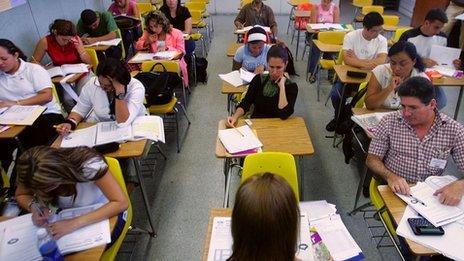Wales must cut it with skills challenge
- Published
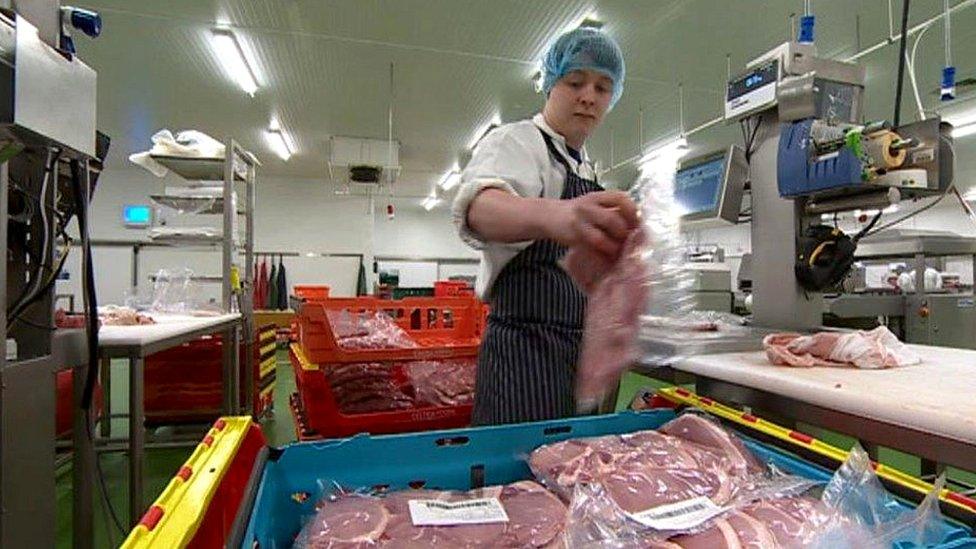
If the butchers at Castell Howell Foods cut the carcasses badly, it also means a cut in profits.
The company has been going for more than 30 years and is one of the biggest employers in the area.
Its new butchery facility at Cross Hands, Carmarthenshire, has been operating for just over a year and skills are a prime focus.
Staff are trained on the premises but also study at training centres as part of their NVQ qualifications.
Castell Howell now employs 600 people across the business and last year it had sales of £94m.
When the company started its boning line in 2008, the shortage of skilled butchers meant it recruited from eastern Europe.
Migrant workers make up about 5% of the workforce and they are now used in a buddy system to pass skills down to a new generation.
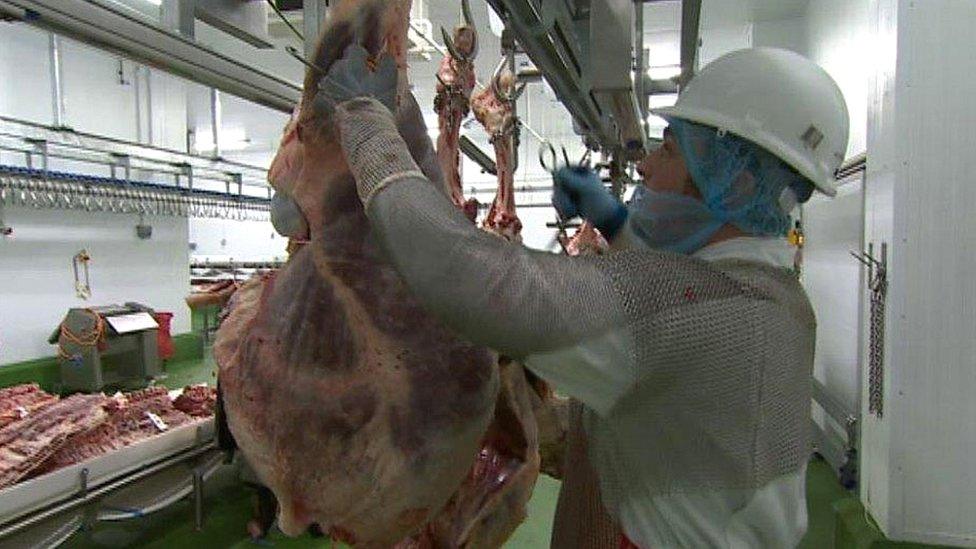
They include 19-year-old apprentice Dewi Davies, from Whitland, who has been working at Castell Howell for three years.
He has already finished third in a Welsh young butchers' competition.
"I just want to develop my skills as a butcher - because it's a trade you can go anywhere with. I just want to keep developing and getting better," he said.
In recruitment, Castell Howell start with an assessment of literacy and numeracy levels and then their school leavers go towards NVQs.
Edward Morgan, butchery director, said skills were vital but fitting in with the rest of the workforce was also essential.
"It's vitally important for all our staff to have the right attitude and if that's right they can build on that with training," he said.
"In Carmarthenshire, there are some large players in the meat industry and there are some skills gaps there but it's incumbent on all companies to take the initiative to train their workers to their requirements."
Middle managers also attend leadership courses at Trinity St David's University.
Castell Howell is now setting up a butchery academy with a local training provider.

MEASURING THE SKILLS GAP
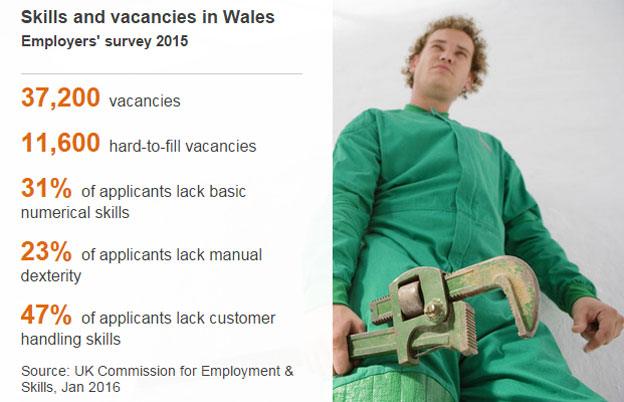
A 10-year skills strategy, external was launched by the Welsh Government in 2014, part of which includes measuring skills performance, external.
This will include monitoring any changes in the level of investment made by employers in the skills of their workforce.
The latest UK Employer Skills Survey,, external published in January, showed skill shortages have increased in Wales to 23% of all vacancies.
There were particular problems recruiting machine operators.
But employers reported a reduction in the skills gap of their workforce as a whole. More (50%) were also offering off-the-job training than before.
Two thirds of Welsh workers (66%) were given some training in the last year, but 49% of companies wanted to give more than they did.
'Skill levels'
However, the survey - which involved more than 200 Welsh companies - showed the challenges ahead.
While computer skills were less of an issue, more applicants for jobs in Wales lacked skills such as basic numeracy, manual dexterity, customer handling skills and the reading and writing of basic instructions than the UK as a whole.
Many small businesses argued it was easier for the bigger companies to absorb the costs of training, but Mr Morgan said the time invested in it was important whatever the size of the company.
"If we train a percentage of our workforce, we lose the same amount of time with them as a small business would.
"But we see it as an investment and every hour spent in the classroom goes towards improving productivity."
In the end, both large and small firms will be looking to see how the parties are offering to help them improve their skill levels and training in the next assembly.
- Published27 July 2015
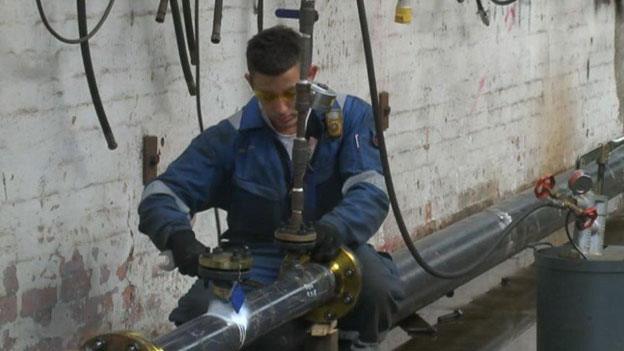
- Published4 December 2013

- Published30 January 2014
